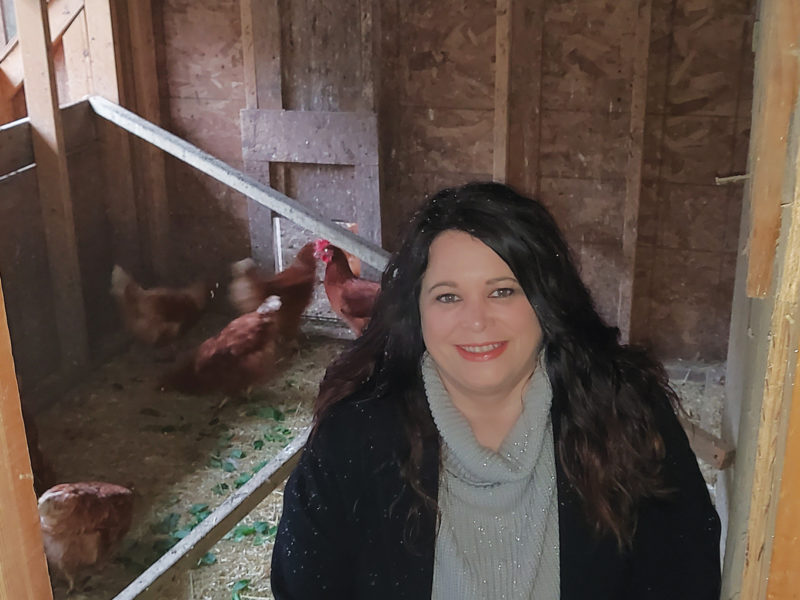CALGARY – More than 75,000 farm operators in Canada are women – about a third of all farm operators in the country – but they’re seldom speakers at farm leadership conferences and relatively few attend such events.
“It became apparent there was a strong need for women in every sector to hear and learn from the experience of successful women,” says Iris Meck, owner of Iris Meck Communications in Calgary.
Six years ago, after bringing a group of farm women together, Meck launched the Advancing Women in Agriculture conferences to help grow leadership skills among farm women. Eleven conferences later, she’s still targeting women engaged in activities from farming to finance and food processing.
This year’s event, held online November 24 and 25 in partnership with Glacier Farm Media, attracted more than 700 registrants. Speakers ranged from young women relatively new to agriculture to successful entrepreneurs from across Canada, Australia and the UK.
While there’s no shortage of issues facing women in the industry, from lack of rural childcare to challenges accessing financing, a persistent issue is the barriers they face even as they take on leadership positions in family businesses.
Sherry Watty, a financial advisor and owner of Watty Insurance Services Ltd. in Abbotsford, discovered that first-hand when she relocated her office from northern Alberta in 2017. A male colleague told her, “You know Sherry, Abbotsford is a community where women don’t sell farm insurance.” Although she didn’t believe the comment was ill-intended, it was off-putting. She became determined to prove him wrong.
“The first day on the job I had seven new team members and felt like a fish out of water. I sat in my office and told myself, ‘Sherry you’ve got this,’” says Watty.
She studied dairy terminology so she would know how to work with local farmers in her new community, and paid farmers visits. She asked questions and soaked up the answers. She leveraged the knowledge to offer to re-examine farmers’ current policies from a risk management perspective. The approach helped her stand out. Soon, in the community she was hearing, “Hey, I’ve heard about you,” spoken in a positive light.
Watty encourages women to continue to educate themselves and not let anyone tell them they can’t do something and to follow their passion.
Taking a stand
Cherie Copithorne-Barnes, CEO of CL Ranches Ltd. near Cochrane, Alberta, encouraged women to stand up for what they believe and address misperceptions of agriculture and agricultural practices. When trees encroached on her pasture, she met some public disapproval of her plans to fell some of the them to maintain the boundary.
Some claimed the stand of trees was historic and needed protection. But as she took the ranch through the official approval process and explained that the stand had only been on the ranch for a hundred years, she was able to proceed. Today, some of the opponents now enjoy walking the newly cleared land.
“The agriculture community needs to reach out to politicians and others locally to keep them informed and educated about agricultural practices and why they are important,” says Copithorne-Barnes. “Don’t be afraid to stand up and say what needs to be said.”
Sheryl Wallace, corporate vice-president, risk management with Cargill Inc., dared women to reach their fullest potential and talk more about their accomplishments.
“As women, we assume that our work speaks for itself. We struggle with balancing being humble and also sharing our achievements. Find creative ways to share your success,” said Wallace who’s has had career ups and downs but learned to be more confident. “Don’t rely on someone to tap you on the shoulder to say you’re CEO material; just believe it and step up.”
Vicki Brisson was raised on a dairy farm in Ontario and currently serves on the Canadian Agricultural Youth Council, convened by federal agriculture minister Marie-Claude Bibeau last year.
Brisson stresses the importance of developing and reaching out to a personal support network. Women need to help other women advance in the industry and promote diversity within the sector. They also need to be collaborators in building a new paradigm of leadership rather than competing with men or each other.
This can give them a sense of the unique value they bring to the table.
“Women, in general, don’t value themselves as highly as men, which leads us to take on more and more responsibility without asking for adequate compensation, which can lead to burnout,” says Shelby Corey of 4-H Saskatchewan.
Corey explained how she factored in her labour costs when pricing her beef. Instead of being positive, the move garnered criticism from producers who didn’t like her pricing strategy. She did it anyway, explaining that her consumers understand.
“We need to know our value and negotiate that. We bring a different value to the table and it’s needed … Know when to use your voice to ask for help or to say no. Speak up when you need to step down from some roles,” advises Corey.
Brisson warned that women need to stop wearing busy like a badge of honour.
“I thought that if I enjoyed my job, I could abandon all my other passions … and I lost myself,” she says. “It’s when I set strict boundaries on how I spend my time that I get the most done.”


 US holds blueberry hearing
US holds blueberry hearing